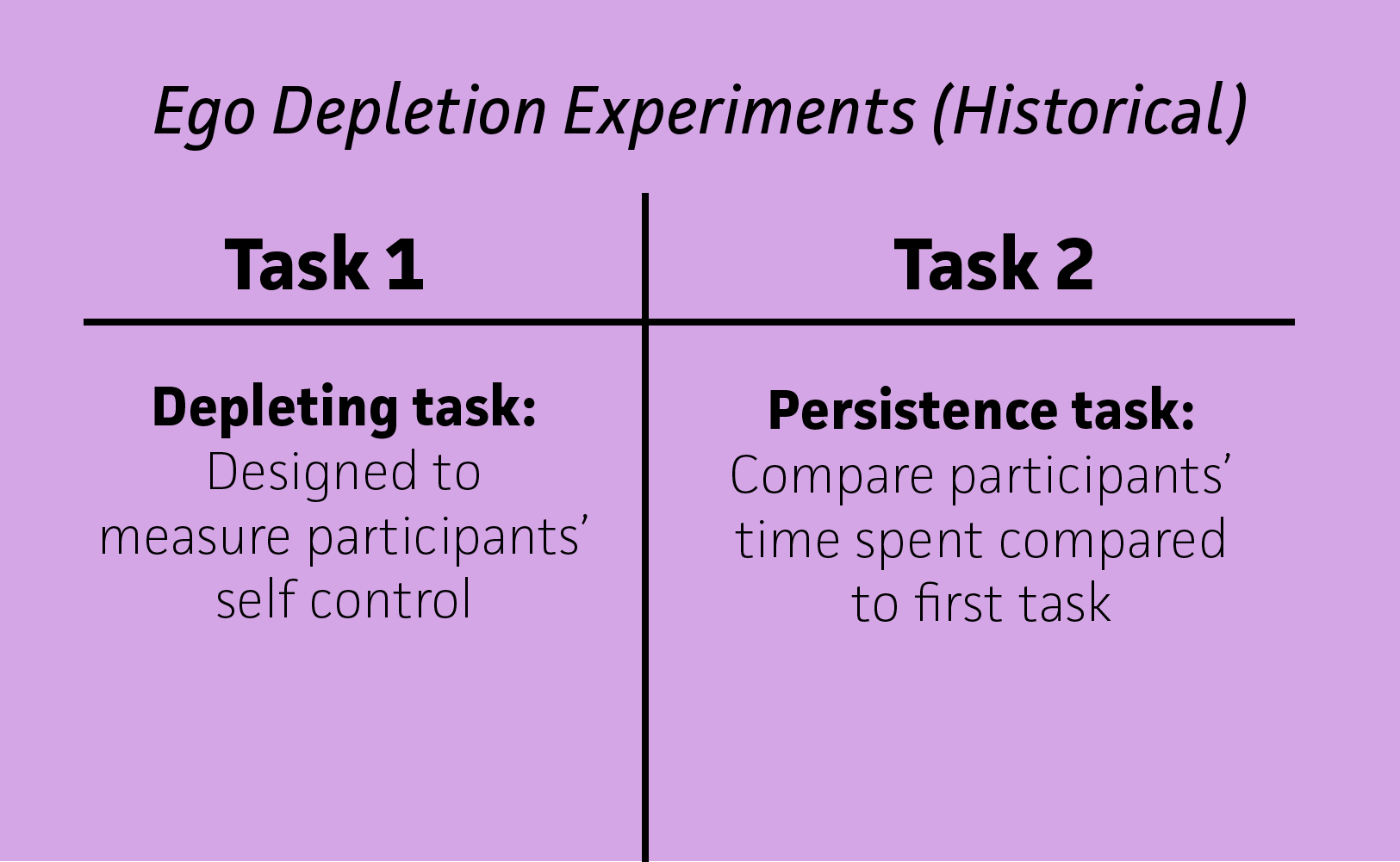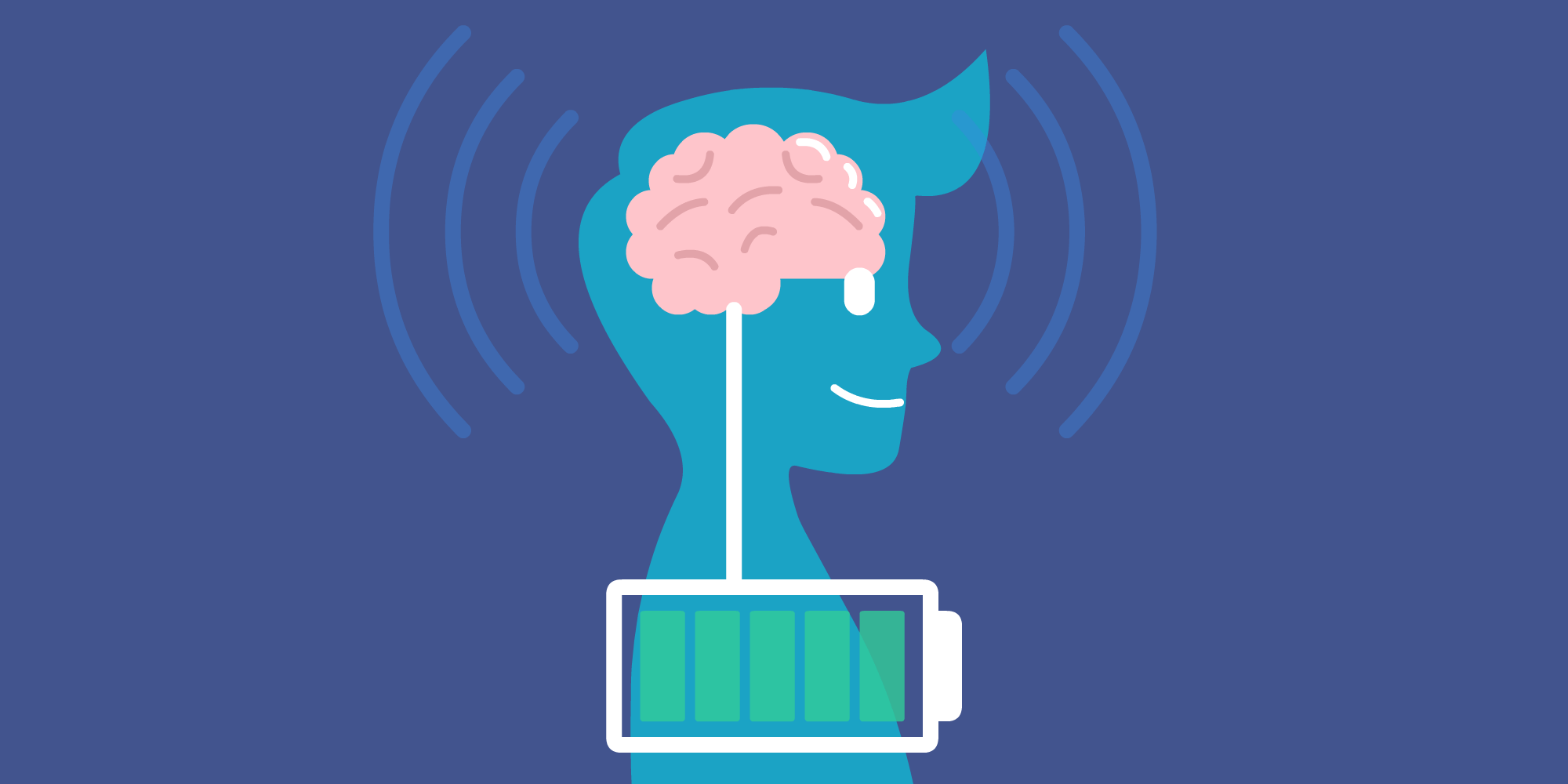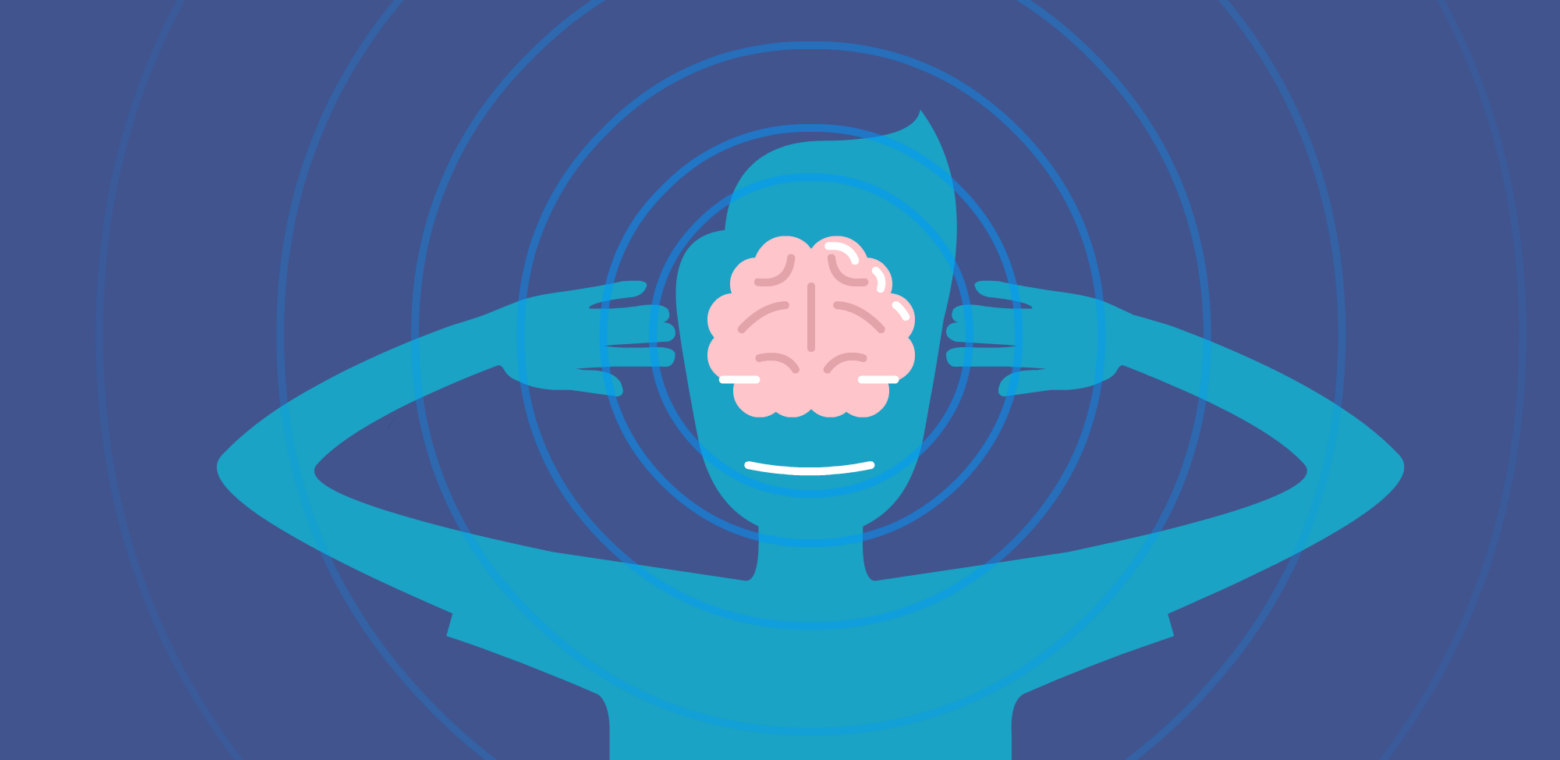Until recently, popular thought was that willpower worked a lot like a tank of gas. With each tough decision you made throughout the day (waking up early for Spin class, resisting a Facebook break at work, eating salad instead of pizza), you used up some of your allotted willpower.
Based on this theory, by the end of the day your resources are spent, making it almost impossible to muster the mental energy to work on your novel instead of watching TV.
Kind of a drag, eh?
Historically this limited willpower model was referred to as “ego depletion.” Recent research, however, suggests we may have it all wrong. Far from a draining tank of gas or a tiring mental muscle, willpower may not have any finite limits at all!

But if willpower isn’t limited, why then do we sometimes feel depleted, and how can we tap into this potentially endless energy?
Why Ego Depletion Is Too Simplistic Of A Definition

The point of new studies and critiques is not to say ego depletion is officially disproven, but that its effect may not be as strong as researchers previously thought. There may also be more than one way to experience the ups and downs of willpower. Some recent studies suggest it may be possible to choose how your willpower works for yourself.
Historically, studies on ego depletion center around how long a participant can withstand a second task after first performing an initial task. The initial task is always centered around the participant’s self control, thus researchers have deemed it the “depleting task.”

Newer research suggests that the initial task, the depleting task, actually causes a participant to shift from a need to control to a need to gratify. Thus, once they get to the second task, they are no longer operating from the same motivation point. This shift in thought process is referred to as a “process model.”
The process model supports the idea that ego depletion exists, but it also suggests that there’s more to the explanation why than hypothesizing, “Doing one task makes you too tired to do another task?” It’s merely not that simple. Perhaps ego stamina can be manipulated into stretching further than researchers originally thought.
If ego depletion isn’t the only, or even the best, explanation of willpower, it begs further questions about how willpower does work, and how much control you have over it.
Retrain Your Brain To Think About Willpower

If willpower really works like a muscle, it shouldn’t matter what kind of effort it takes to wear it out. For example, it can be argued that a fun activity like dancing tires you out as much as a less enjoyable workout; your muscles are working the same amount whether you enjoy the workout or not.
Cutting down on unnecessary choices supposedly saves willpower for more important decisions. That’s part of the reason that some mega-successful people, like Mark Zuckerberg, wear similar clothes every day. But research shows that although people feel “depleted” after doing a task they think of as work, their self-control stays high if they re-frame the task as an opportunity to have fun.
Whether your willpower gets “depleted” or not may come down to your attitude. If you believe you have unlimited willpower, it’s likely to turn out to be true. Yes, that sounds cheesy. Don’t roll your eyes just yet: There’s science to back this up.
Multiple studies compared how people with different beliefs about their own willpower perform on tasks. Here’s what they learned about people who believe their willpower is unlimited:
- They don’t need a sugar high to work efficiently. A series of three experiments showed that participants who believed in limited willpower performed a task better when served a sugary drink versus when they were served a non-sugary drink. Participants who believed in an unlimited willpower model, however, kept their self-control high whether or not they drank a sugary drink.
- They bounce back after a hard day. While people who believe the limited willpower theory expect to be exhausted and unproductive the next day, unlimited theory followers set higher progress goals. They follow up on those goals, too, reporting more effective work than limited theory believers.
- They keep learning and improving during a sustained task well after the point when other people begin to feel “depleted.”
Part of the reason behind these differences is that you act differently when you believe willpower is unlimited. You procrastinate less and prepare more efficiently. You’re more likely to view solving a challenging problem as a motivating experience, instead of an exhausting one. If a task goes more smoothly because of better preparation, it’s probably easier to keep that good momentum going.
Real World Examples
Clearly, it’s worthwhile from a productivity standpoint to cultivate an unlimited willpower mindset. One way to start reimagining willpower is to think of it as an emotion.
You’d probably laugh at the idea of “depleting” an emotion like love or happiness. For example, you’d never recommend that a friend get rid of his dog so he can put his limited love resources toward a new relationship, or spend the morning of your birthday sulking so you can “save” your happiness resources for your party that night.
There’s no reason not to think that your willpower will rise to the occasion when a task you view as exciting is presented to you. Except, of course, that you never struggle to love your dog, but you have a hard time sticking to a diet. If willpower is potentially unlimited, what makes us feel drained?
Michael Inzlicht, a researcher at the University of Toronto, explains that self-control crises happen when two of your goals conflict. Your emotional response determines your choice. It’s not that you’re completely unable to resist the pint of rocky road ice cream in the freezer. It’s more likely that losing 10 pounds by swimsuit season is a less valuable goal to you than a creamy treat now.
One possible key to unlimited willpower is spending more time on projects you enjoy, or at least focusing on the positive aspects of a task. The more you can tap into activities that excite you, the better your chances will be to keep your motivation high.
That might also mean acknowledging that it’s okay to give up on certain goals. If you can’t muster any emotional motivation to run a marathon, slogging through an 18-mile jog is never going to feel worth it.
In a perfect world, you could fill your life only with activities that inspire genuine, powerful motivation. In reality, even dream jobs often come with at least one unpleasant task. When willpower is low, habits may come to the rescue, some researchers say. Habits tend to lock in with cues in our environment, instead of an emotional tie.
Setting up a routine, like filling out a boring report right after grabbing your mid-morning snack, can help you use autopilot to your advantage.
How To Put Unlimited Willpower Into Practice

Researchers like Inzlicht still acknowledge that prioritizing a long-term goal you care about over a tempting impulse takes effort. What you do in your free time can help you practice keeping your motivation high.
Physical exercise has been shown repeatedly to improve cognitive and executive function (a more clinical way of talking about willpower). The important thing is to be consistent. Willpower boosts come with a long-term exercise habit. This could be because putting in the effort, even on rainy days or when you’re tired, makes you more comfortable with minor inconveniences.
Sporadic workouts, on the other hand, are linked with both positive and negative effects on willpower, depending on factors like workout intensity.
Mindfulness activities, like meditation, have also been linked with improved willpower. The idea is that learning to consider thoughts and feelings in the moment in a non-judgmental way makes it easier to recognize when you’re vulnerable to temptation and, most importantly, respond with self-control.
You might want to consider giving yourself a reminder of your newfound belief. That doesn’t mean you have to hang a motivational poster of a mountain over your desk (although no judgment, if you’re into that). But if there’s a symbol or mantra that’s meaningful to you, it might help. Researcher Eric Miller and colleagues found that even subtle cues about unlimited willpower can have a short-term impact on your ability to access that mindset.
For the same reason, it’s a good idea to watch how you talk with friends or co-workers about willpower. The research on unlimited models of willpower indicate that a variety of mental and emotional cues can affect our ability to keep motivation high. Avoiding conversations about feeling drained might make it easier and faster to redefine your own expectations for your willpower.
How do you inspire yourself to work toward big goals? How much does your attitude define your workday productivity? Let us know if you have advice for rethinking willpower!
Next: Level Up Your Willpower For A More Productive Day (including alternate theories on managing willpower)










































